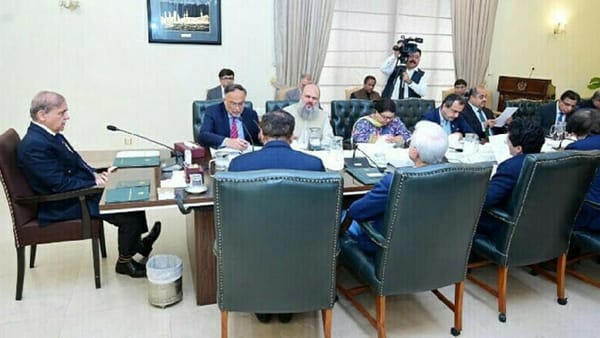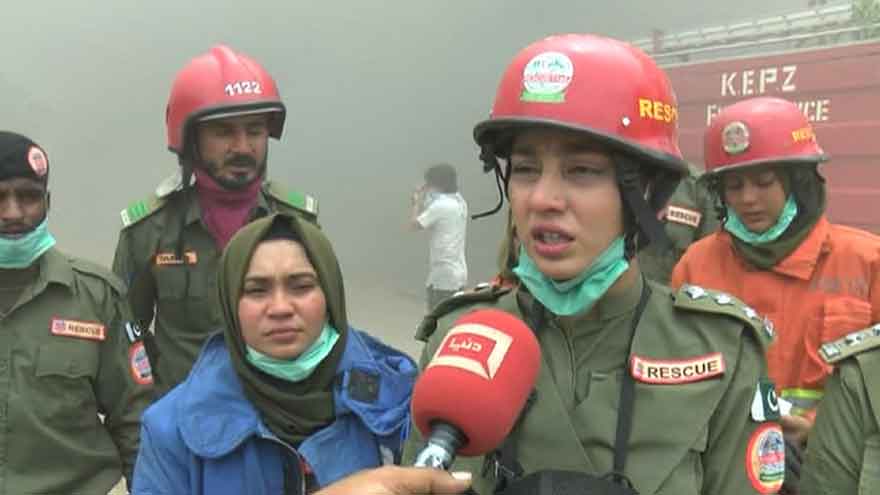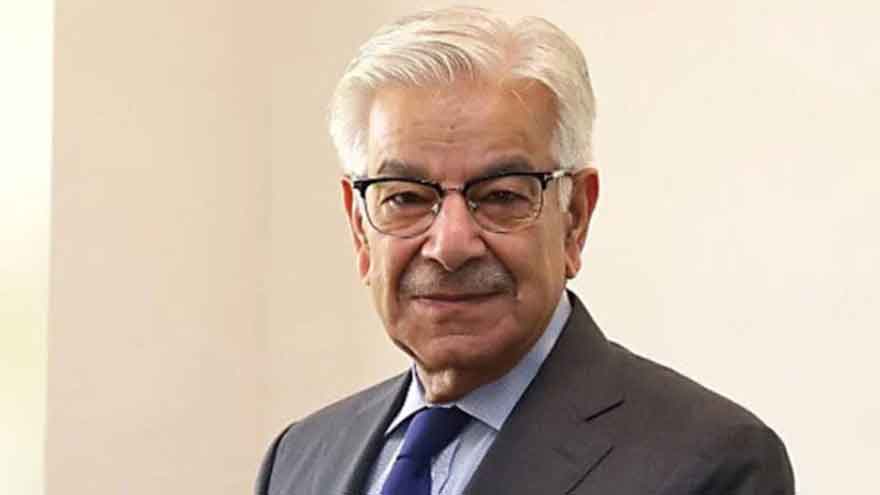Military trials meant for APS-like tragedies: judge

Justice Musarrat Hilali, a member of the Supreme Court’s constitutional bench, raised concerns on Wednesday about the applicability of military trials to civilians under the Pakistan Army Act (PAA), noting that they were originally intended for perpetrators of tragic incidents like the 2014 Army Public School (APS) massacre and questioned whether the same could apply to civilians accused in the May 9 violent protests.
Justice Hilali observed that while the rights of accused individuals facing military trials might be curtailed, the Constitution’s guarantee of fundamental rights could not be suspended. She also questioned whether the accused fully understood the gravity of their actions or the potential punishments they could face.
Senior counsel Khawaja Haris Ahmed, representing the Ministry of Defence, replied that fundamental rights remain intact even in such cases, adding that there were court decisions in this regard.
The seven-judge bench was hearing appeals against an Oct 23, 2023, decision by a five-judge bench that nullified the trial of civilians in military courts.
Justice Muhammad Ali Mazhar noted that the relevant laws already categorise offences, while Justice Jamal Khan Mandokhail emphasised that the accused in the May 9 incidents were neither members of the armed forces nor ex-servicemen.
“We have a realisation that a number of military personnel were being martyred on a daily basis, but the real question that needs attention was that the cases of those accused involved in such offence were not being tried exclusively by the military courts,” Justice Mandokhail observed.
“The real question still remains: To what extent can a civilian be tried in the military courts?” Justice Mandokhail questioned, also wondering whether a citizen could be tried by the military courts even for having inkling or thoughts against the military.
Justice Naeem Akhtar Afghan pointed out that if the court upheld the Oct 23 decision, no civilians could be tried by military courts. However, if the court decided otherwise, it would need to clearly classify which civilians could face such trials.
Justice Mandokhail said that, undoubtedly, parliament has the authority to make any law spelling out what acts amount to an offence. “Parliament can even make a law suggesting that even looking with a slanted eye could be described as a crime,” he said.
He also highlighted the constitutional responsibility of parliament to establish legal forums for specific crimes, asserting that the Constitution, not parliament, is supreme.
The defence counsel argued that the Oct 23 ruling misinterpreted Clauses 3 and 5 of Article 8 of the Constitution, insisting that these provisions were distinct and could not be combined. He cited the Brig F.B. Ali case, in which a retired military officer was tried in a military court as a civilian.
Punjab govt assures compliance
Meanwhile, in line with Tuesday’s direction, the Punjab government, through Additional Advocate General (AAG) Waseem Mumtaz, assured the Supreme Court that prisoners convicted for their involvement in the May 9 violence were being treated in accordance with the Pakistan Prison Rules of 1978 and all basic facilities enshrined in these rules were being provided.
A report submitted by the government said that 28 convicts were admitted to Lahore’s Kot Lakhpat Jail in December 2024 after being convicted by the military court of Lt Col Sheikh Muhammad Asad Javaid, the commanding officer of the 54th Electrical and Mechanical Engineers Battalion.
Two prisoners were later released on Jan 2, 2025, following a sentence remission by the Chief of Army Staff.
During the hearing, Justice Mazhar, while pointing towards the television analyst Hafeezullah Niazi, said that Mr Niazi had alleged that these accused were being kept in the worst conditions in the jail.
In response, Mr Niazi said that while facilities were being extended to the inmates and family meetings were being arranged, the prisoners were kept in solitary confinement and not allowed to leave their cells.
Justice Mazhar questioned whether separate cells were necessary for each prisoner. Justice Mandokhail recalled how he spent 14 days in jail as a lawyer at the time of the lawyers’ movement, explaining that inmates were allowed to move freely, roam around or sunbathe after dawn.
However, Justice Hassan Azhar Rizvi observed that Justice Mandokhail must be getting concessions for being a lawyer.
However, when the Punjab AAG recalled how he and Justice Shahid Bilal Hassan, also a member of the bench, spent time together in Bahawalpur Jail, Justice Mazhar quipped, “Don’t reveal old secrets here now.”
Justice Aminud Din Khan, who was heading the constitutional bench, observed that the court would be looking into this matter daily and even order dispatching an individual to inspect jail premises if need be.
Mr Niazi, however, said that though inmates could meet their family members, they were not being given permission to meet their lawyers.
Justice Hilali reminded that when she was Chief Justice Peshawar High Court, she used to visit the prisons regularly, adding that generally she was not allowed to go near the accused convicted by military courts and they were placed in high-security compounds.
Justice Mandokhail said that even terrorists and murder accused were allowed to roam freely in prisons and questioned what crime these accused had committed.
The court sought a fresh report from the Punjab government regarding the detention of the accused in solitary confinement and not allowing them to meet with their lawyers.
The provincial government’s present report stated that prisoners were provided with basic amenities, including hygienic meals, bedding and hygiene kits. Family interviews were facilitated on Fridays, and an outlet of the Utility Stores Corporation allowed inmates to purchase items at their own expense.
Besides, the family members were also allowed to bring home-cooked food, fruits and other permitted eatable items. The medical staff is also available round the clock to address any medical issue of any prisoner, the report said.




